#yoichi numata
Explore tagged Tumblr posts
Text
Celebrating episode 300, your deadicated hosts travel to Japan for Nobuo Nakagawa's masterpiece JIGOKU (1960)! The film stars Shigeru Amachi, Yoichi Numata and Utako Mitsuya.
Your hosts discuss nihilism, Buddhism, gore and more in this landmark episode.
Context setting 00:00; Synopsis 36:08; Discussion 49:48; Ranking 1:22:57
#podcast#horror#japanese horror#japanese gore#nobuo nakagawa#shintoho#jigoku#buddhism#the sinners of hell#shigeru amachi#yoichi numata#utako mitsuya#hiroshi izumida#kiyoko tsuji#akiko ono#hiroshi hayashi#kimie tokudaij#jun otomo#mitsugu okura#ichiro miyagawa#mamoru morita#toshio goto#chumei watanabe#faust#SoundCloud
12 notes
·
View notes
Text
Now watching:
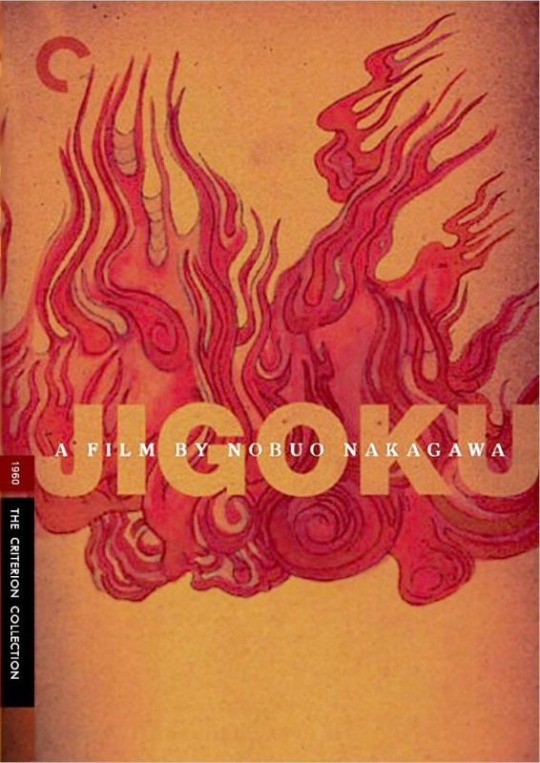
0 notes
Text

Ring (Hideo Nakata, 1998)
Cast: Nanako Matsushima, Hiroyuki Sanada, Rikiya Otaka, Miki Nakatani, Yuko Takeuchi, Hitomi Sato, Daisuke Ban, Rie Ino, Masako, Yoichi Numata, Yutaka Matsushige, Katsumi Muramatsu. Screenplay: Hiroshi Takahashi, based on a novel by Koji Suzuki. Cinematography: Jun'ichiro Hayashi. Production design: Iwao Saito. Film editing: Noboyuki Takahashi. Music: Kenji Kawai.
Hideo Nakata's Ring is a film with nicely creepy images and a neat premise that imbues modern technology with ancient dread: an ordinary and (at the time) familiar item like a videocassette that carries a deadly curse giving its victim a few days of torture and fear. The supernatural by definition has no rules, so the best anyone investigating a supernatural occurrence like a haunted videotape can do is find out what's causing it, which constitutes the film's plot. Of course, it helps if the investigator has supernatural powers like extrasensory perception, which is why I think the screenplay cheats a little, depriving the film of some of the suspense it would have had if the tape's victims had less of an advantage.
0 notes
Text

vimeo
Staff Credit Brand : ANREALAGE + ASICS ANREALAGE Designer : Kunihiko Morinaga
Hardware Design / planning : Motoi Ishibashi(Rhizomatiks Research) Hardware Engineer : Yoichi Sakamoto (Rhizomatiks Research) Hardware Engineer : Toshitaka Mochizuki (Rhizomatiks Research) Hardware Engineer : Hideaki Tai (Rhizomatiks Research) Lighting Designer, Software Engineer : Daito Manabe (Rhizomatiks Research) Sound Design : Setsuya Kurotaki (Rhizomatiks Research) Producer : Takao Inoue (Rhizomatiks Research) Assistant Project Manager : Tomoyo Obata (Rhizomatiks Research) Film Director / Offline Editor : Kenichiro Shimizu (HOTZIPANG) Assistant Film Director : Yuriko Sumi (HOTZIPANG) Cameraman : Ryuhei Watanabe Camera 1st Assistant : Tomohiko Takeno D.I.T : Hirohide Osawa Lightman : Yuuki Maeshima Light 1st Assistant : Tassufumi Shimada CG Designer : Shogo Kawata(GORAKU) Online Editor : Kensaku Numata(Ray Corporation) Production Manager : Mari Matsumoto
©︎2017 ASICS Corporation All Rights Reserved.
0 notes
Photo


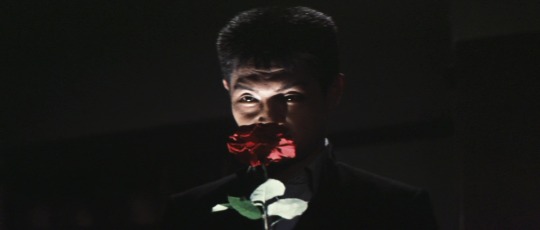





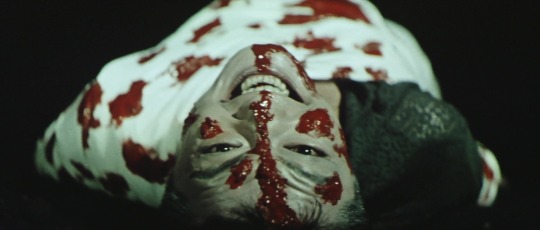
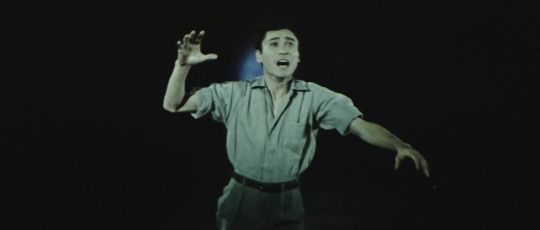
Jigoku (1960, Nobuo Nakagawa)
Also known as: The Sinners of Hell
地獄 (中川信夫)
10/2/22
#Jigoku#The Sinners of Hell#Nobuo Nakagawa#Shigeru Amachi#Utako Mitsuya#Yoichi Numata#Hiroshi Hayashi#Jun Otomo#Akiko Yamashita#Kiyoko Tsuji#60s#Japanese#horror#crime#hell#afterlife#underworld#Buddhism#guilt#murder#manslaughter#hit and run#deception#gore#torture#demons#death#mythology#color
14 notes
·
View notes
Text







Nel 1998 il pubblico occidentale faceva un impatto frontale col J-horror attraverso il suo titolo forse più significativo, la cui eredità perdura ancora oggi per molti motivi
#Ring#Ringu#Hideo Nakata#japan#Horror#J-horror#Nanako Matsushima#Rikiya Otaka#Hiroshi Takahashi#Daisuke Ban#Junichiro Hayashi#Hiroyuki Sanada#Yoichi Numata
5 notes
·
View notes
Link
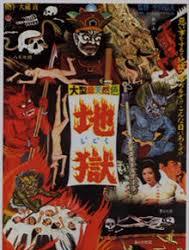
#jigoku#nobuo nakagawa#ichiro miyagawa#Ichirô Miyagawa#shigeru amachi#utako mitsuya#yoichi numata#Yôichi Numata#drama#japan#hell#devil#demon#demons#hiroshi hayashi#jun otomo#Jun Ôtomo#akiko yamashita#kiyoko tsuji#fumiko miyata#akira nakamura#kimie tokudaiji#akiko ono#horror#horror movie#horror movies#horror review#horror reviews#horror reviewer#horror film
0 notes
Photo

Lobby card for Trap Of Fear (Kyofu No Wana, 恐怖の罠), 1959, directed by Hiromasa Nomura (野村浩将) and starring Masayo Banri (万里昌代) and Yoichi Numata (沼田曜一).
#Masayo Banri#Hiromasa Nomura#Trap Of Fear#Yoichi Numata#恐怖の罠#Kyofu No Wana#野村浩将#万里昌代#沼田曜一#lobby card#Shintoho
47 notes
·
View notes
Text

Shigeru Amachi in Jigoku (Nobuo Nakagawa, 1960)
Cast: Shigeru Amachi, Utako Mitsuya, Yoichi Numata, Hiroshi Hayashi, Jun Otomo, Akiko Yamashita, Kiyoko Tsuji, Fumiko Miyata, Akira Nakamura, Kimie Tokudaiji, Akiko Ono, Hiroshi Izumida. Screenplay: Nobuo Nakagawa, Ichiro Miyagawa. Cinematography: Mamoru Morita. Production design: Shosuke Sasane, Haruyasu Kurosawa. Film editing: Toshio Goto. Music: Michiaki Watanabe.
I know what hell is: listening to elevator music interrupted by assurances that "your call is important to us" while on infinite hold. Which is not the idea that director Nobuo Nakagawa and co-screenwriter Ichiro Miyagawa present. It's pretty much the traditional one of fire and torture. Jigoku is a cult film, as many of the better (or at least more arty) horror films become, and while I'm not a member of the cult I can appreciate the skill with which Nakagawa presents his vision. It's a movie that ranges from deeply somber to extraordinarily lurid. The protagonist, Shiro (Shigeru Amachi), is a student who, after celebrating his engagement to Yukiko (Utako Mitsuya), gets into a car driven by his sardonic friend Tamura (Yoichi Numata). On a dark road, Tamura runs down and kills a gangster, Kyoichi (Hiroshi Izumida), whose mother (Kiyoko Tsuji) witnesses the accident. Shiro wants to stop, but Tamura keeps driving. Since her son was a gangster, she doesn't report the hit-and-run to the police but, along with Kyoichi's girlfriend, Yoko (Akiko Ono), vows to hunt down Tamura and Shiro and kill them. After pleading with Tamura, Shiro decides to go to the police himself, but on the way the taxi driver -- whom Shiro briefly hallucinates as Tamura -- runs into a tree and Yukiko, who has reluctantly accompanied Shiro, is killed. Shiro's road to hell is certainly paved with good intentions, and after his death he winds up there. He has received a telegram that his mother is critically ill, so he goes to see her at the home for the elderly that his father runs in the country. She's not as ill as he feared -- the telegram was actually sent by Kyoichi's mother and girlfriend to lure him into their trap. He discovers that the old folks' home his father owns is actually run on the cheap, with a doctor who skimps on medicine and food. He also encounters Sachiko, a young woman who looks exactly like his fiancée, Yukiko, down to the pink parasol she carries. She turns out to be the sister Shiro didn't know he had, but by this time revelations are coming hard and fast: Tamura -- who appears more and more demonic -- turns up too, as do the potential assassins, and in an elaborate concoction of circumstances, everybody dies, including Shiro. And everybody goes to hell, which is a fantasia crafted out of depictions from old Buddhist paintings and traditional cinematic imaginings of the underworld. Shiro learns there that the taxi accident killed not only Yukiko but also their unborn child, and he spends much of his time trying to rescue the infant from the torments of the afterlife. The film ends, after much exploration of the more gruesome torments of hell, with Shiro's vision of the twinned Yukiko and Sachiko, both with pink parasols, but although it suggests Faust being redeemed by Gretchen, there's nothing to indicate that this is any kind of redemption for Shiro. In short, Jigoku is complicated, contrived, confusing, sometimes a little cheesy and more than a little morally questionable -- does Shiro really deserve to go through all this? -- but also thoroughly fascinating.
2 notes
·
View notes
Text
Happy 300th episode to the best movie podcast!

Celebrating episode 300, your deadicated hosts travel to Japan for Nobuo Nakagawa's masterpiece JIGOKU (1960)! The film stars Shigeru Amachi, Yoichi Numata and Utako Mitsuya.
Your hosts discuss nihilism, Buddhism, gore and more in this landmark episode.
Context setting 00:00; Synopsis 36:08; Discussion 49:48; Ranking 1:22:57
#podcast#horror#japanese horror#japanese gore#nobuo nakagawa#shintoho#jigoku#buddhism#the sinners of hell#shigeru amachi#yoichi numata#utako mitsuya#hiroshi izumida#kiyoko tsuji#akiko ono#hiroshi hayashi#kimie tokudaij#jun otomo#mitsugu okura#ichiro miyagawa#mamoru morita#toshio goto#chumei watanabe#faust#SoundCloud#Film history#Movies#j horror#Movie podcast
12 notes
·
View notes